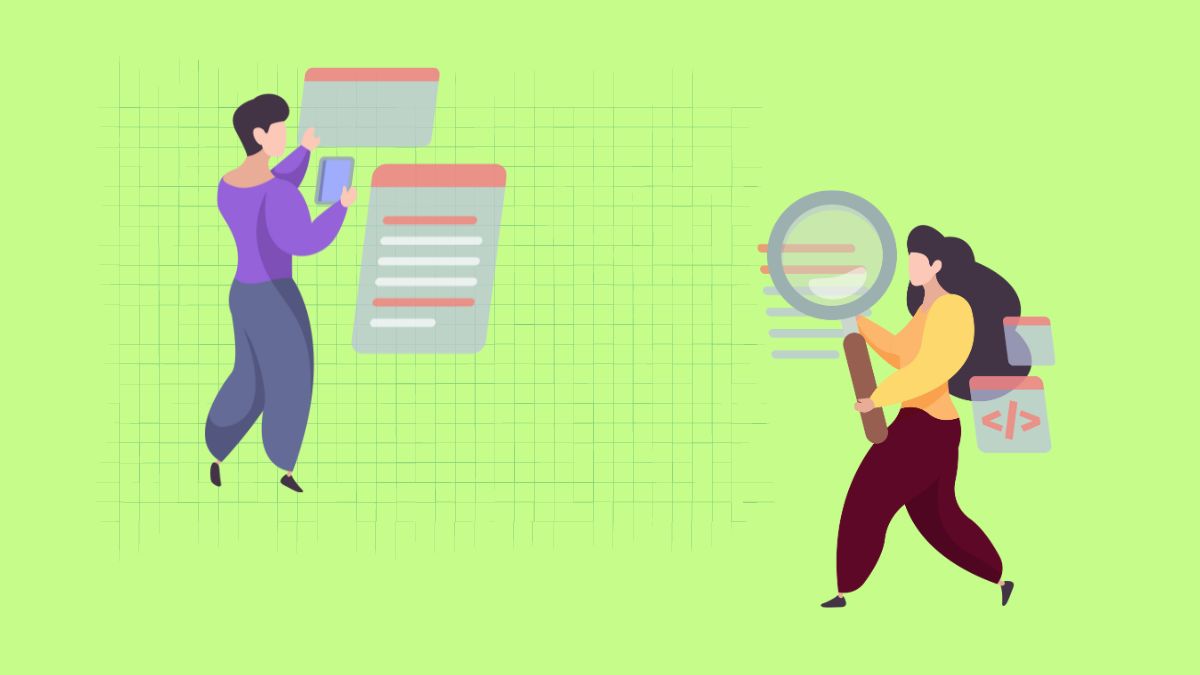According to the U.S. Bureau of Labor Statistics, the demand for quality control and testing specialists will increase by 25% by 2032. This is higher than the average for other professions. Local demand for QA testers varies by country and city, but QA specialists can always find remote work.
Many beginners start their careers as software quality testers. From a junior QA tester, you can grow to a manual testing specialist, and eventually take on the role of a QA engineer, QA analyst, or testing manager. The field evolves with technological progress since quality control is a key component of the software development life cycle. The demand for QA testers is growing, and the average annual salary in the USA is about $64,400.
Quality control is an integral part of the quality assurance process. While QA aims to ensure that the product meets the organizations, industry, and general quality standards throughout the development process, QC is charged with identifying and correcting errors in the delivered solution.
QC experts anticipate and reduce errors whenever possible. QA specialists ensure that the finished product is bug-free and ready to go to market in a perfect condition.
If you don't know how to forecаst demand in QA testing and are concerned that artificial intelligence may displace professionals in this field, think about the particularities of manual testing. No software can substitute for a human when it comes to the need for high-level manual testing.
How Has the Growth of AI Influenced the QA Labor Market?
Software quality assurance and testing largely depends on the dynamic development of artificial intelligence. Companies have begun to actively use machine learning to accelerate software quality control and increase the productivity of various control processes. The need for QA and QC has not decreased, but increased as software becomes more complex and competition in the industry increases.
AI-based test automation has become popular and has a number of advantages:
- AI algorithms can detect patterns in test data and generate test scenarios.
- Automation tools can self-heal and adapt to changes in the testing program.
- It is now possible to analyze historical test data, predicting where and what defects may occur.
- AI can generate test scenarios based on previous user behavior, thus taking into account the most relevant and critical test scenarios.
- Machine learning allows you to automatically update test scenarios, thereby reducing maintenance costs.
Therefore, the need for QA, QC and the introduction of AI-related technologies into the workflows of software, mobile application, website, etc. developers is growing. The lack of human control over all processes can be costly for a company. AI relies solely on clean and complete data. Only then can AI testing be reliable and accurate.
It is difficult to overestimate the value of QA manual testing specialists.Unlike automated testing, manual testing is performed by specialists. They create test scenarios and detailed instructions to check various product functions. A specialist can examine the functionality and interface of software, websites, online services, or applications from the user's point of view using different devices, browsers, and operating systems.
A manual QA tester not only identifies errors but also helps developers fix them and communicates with other team members. They can work with code and simultaneously test the product outside the software, like a regular consumer. Only a knowledgeable person can do this, so the demand for such specialists will not disappear, regardless of AI advancements.

Why Will Companies Always Need QA Specialists?
The value proposition of a QA specialist determines their demand in the job market. Most developers will pay attention to your vacancy if you can offer testing of different types using modern tools and guarantee that the perfect product will hit the market faster with your control.
If you are unsure what you need for QA, QC and software testing besides understanding the basics of the profession and coding languages to control quality and software, thoroughly familiarize yourself with Agile and DevOps methodologies. Their integration into software development has increased the demand for QA specialists. However, the requirements for specialists are constantly increasing. While automation handles repetitive tests, specialists must focus on complex testing scenarios and quality control.
The demand for QA, importance of this direction are especially significant in IT, finance, and healthcare industries. For companies, it is crucial that their products are safe, convenient, and accessible to customers.
Conclusions
There are many types of QA testing used at different stages of development. Some of them do not require knowledge of programming languages. More important is a deep understanding of the internal structure and architecture of the software, knowledge of the product, and the business processes of the developing company.
Despite the importance of QA with automated processes, many tasks require human interaction. Here, the experience of a manual tester or quality assurance specialist who thoroughly knows the developer's business and target audience comes first.
Is there a future for QA?
According to forecasts, the demand for specialists in the QA field will increase by 25% by 2032. This rate is higher than the average for most other professions.
Will QA become outdated?
Companies need QA because a large number of increasingly complex programs are entering the market, and profits from sales directly depend on the quality of the product. Therefore, quality assurance cannot become obsolete, especially when it comes to manual testing, which can only be performed by a human, not artificial intelligence.
Is there a demand for quality assurance?
There is a demand for quality assurance, and it is constantly growing. Today, all major companies use the services of quality assurance specialists to release error-free products to the market.















